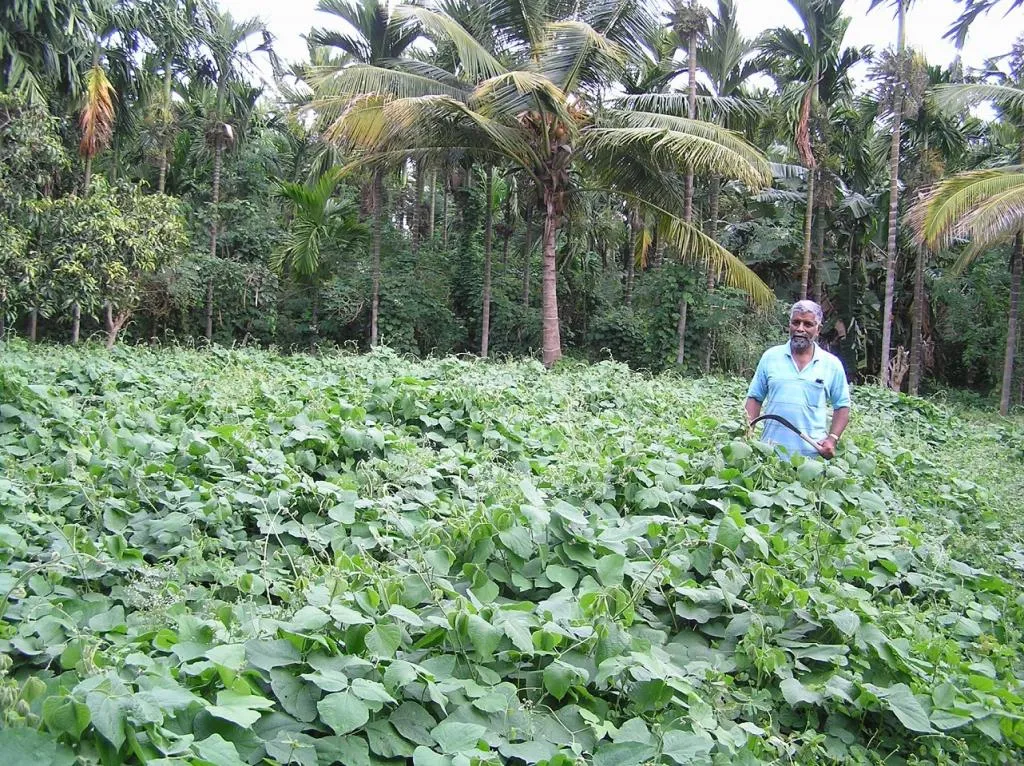In the heart of Karnataka, India, a significant stride has been made in the quest for drought-tolerant crops, a development that could potentially reshape the agriculture sector’s resilience to climate change. Researchers at the College of Agriculture, Hassan, have successfully screened F6 Recombinant Inbred Lines (RILs) for drought tolerance in green gram [Vigna radiata (L.)], a crucial pulse crop in many parts of the world.
The study, led by M. S. P. Kanavi from the Department of Genetics and Plant Breeding, University of Agricultural Sciences, Bangalore, was conducted under drought stress conditions using an Augmented Randomized Block Design. The F6 RILs were derived from a cross between a drought-tolerant line, VGG10-010, and a drought-susceptible line, AKL-225. The drought condition was effectively imposed by withholding irrigation 25 days after sowing, with no unpredicted rains during the entire cropping period.
The analysis of variance (ANOVA) revealed highly significant mean squares attributable to F6 RILs for all the traits under investigation. This suggests substantial genetic variability among the RILs, a critical factor for successful plant breeding programs. “The results suggest significant differences among the F6 RILs,” Kanavi noted, emphasizing the importance of assessing genetic variability in identifying the best transgressive RILs.
The implications of this research for the agriculture sector are profound. Drought tolerance is a critical trait for crops, especially in the face of climate change, which is expected to bring about more frequent and severe droughts. By identifying and breeding drought-tolerant varieties, farmers can expect more reliable yields even in dry conditions, enhancing food security and improving livelihoods.
Moreover, the study’s findings could accelerate the development of drought-tolerant varieties in other crops. The methods and insights gained from this research could be applied to other pulse crops and even other plant species, broadening the impact of this work.
The research was published in the International Journal of Bio-Resource and Stress Management, contributing valuable data to the global effort to improve crop resilience. As we grapple with the challenges posed by climate change, such studies offer hope and a path forward, demonstrating the power of scientific research in shaping a more sustainable and secure future for agriculture.
This study not only advances our understanding of drought tolerance in green gram but also underscores the importance of genetic variability in plant breeding. As we look to the future, such research will be crucial in developing crops that can withstand the challenges posed by a changing climate, ensuring food security for generations to come.

